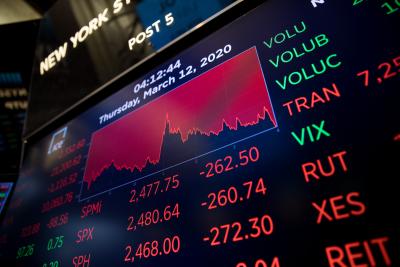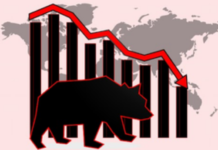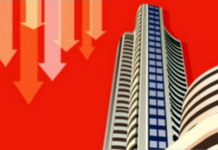New York— Mondays punishing selloff in US markets could be the beginning of the next leg lower for stocks as a sense of complacency has taken hold in
markets following a stellar October and November, MarketWatch reported.
In a note to clients on Monday, Jonathan Krinsky, chief technical strategist at BTIG, said that US stocks were primed to tumble after the S&P 500 bounced off its latest resistance level, which coincided with the index’s 200-day moving average, a key technical level for assets.
“Investors have gotten too complacent, as the SPX is turning down from its year-long downtrend resistance just as it did in March and August,” Krinsky said, MarketWatch reported.
Other market strategists agreed with that warning, but clarified that the sense of complacency has been the result of the market’s powerful
relief rally over the past six weeks.
Katie Stockton, a technical strategist at Fairlead Strategies, said the latest pullback for stocks is “a sign that the market is fragile, and reasonably so given the longevity and magnitude of the relief rally”.
Before Monday’s session, the S&P 500 had risen more than 16% off the intraday lows reached on Oct. 13, the day stocks staged a historic turnaround following the release of hotter than expected inflation data from September.
After the release of the November jobs report on Friday, stocks slumped again on Monday, with the S&P 500 and Nasdaq Composite Index recording their biggest pullbacks since Nov. 9, according to Dow Jones Market Data, MarketWatch reported.
The Dow Jones Industrial Average and Russell 2000 also sold off sharply.
Traders’ sense of security is reflected in the CBOE Volatility Index, otherwise known as the “VIX” or Wall Street’s “fear gauge”, according to Nicholas Colas, co-founder of DataTrek Research.
Often a counter-indicator, the VIX reaching a sub-20 level should have been a warning sign for investors that stocks were vulnerable to a selloff, Colas told MarketWatch.
As Colas explained in a note to clients on Monday, the main concern for stocks right now is that investors have been ignoring risks of further downward revisions to corporate earnings expectations, as well as other potential blowback from a looming recession that many economists view as likely, MarketWatch reported. (IANS)







